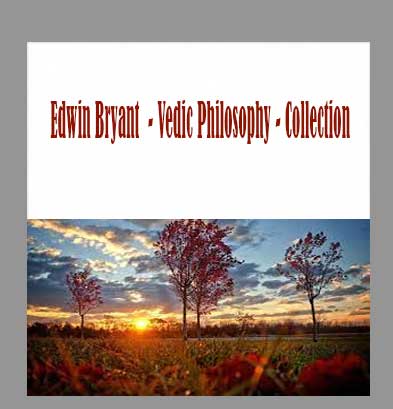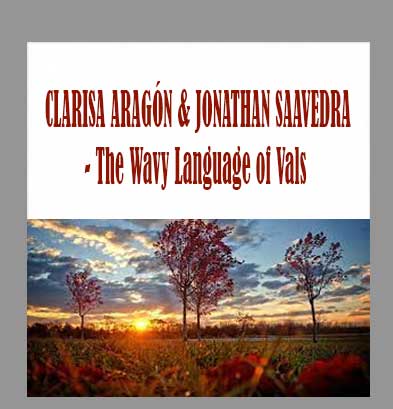
Description
Edwin Bryant – Vedic Philosophy – Collection download, Edwin Bryant – Vedic Philosophy – Collection review, Edwin Bryant – Vedic Philosophy – Collection free
Edwin Bryant – Vedic Philosophy – Collection
About
This course is available to you on-demand which means you will have instant access to all of the modules and course materials and can study at your own pace! The course syllabus, slides, and resources can be found under the “Resources” tab. Please note you can only access the resources if you’re enrolled in the course.
Course Description
This course will attempt an overview of some of the six main schools of orthodox Vedic thought up to the medieval period: Vedānta, Sāṃkhya, Yoga, Mīmāmsā, Vaiśesika, and Nyāya, along with the two core and canonical texts that have been most formative to Yoga, the Upaniṣads and the Bhāgavad Gītā. Attention will be paid to some of the prominent interconnections and points of contestation amongst some of these schools, but we will keep a strong focus on Yoga, given its prominence in exported Hinduism. The course will utilize primary texts – the original Sanskrit sutras and verses – so that students will have the opportunity of engaging some of these schools directly in their own words and through their own categories.
Course Objectives
To expose ourselves to the goals of life as articulated by these traditions, and their expositions on the big existential issues faced by all humans – the nature of the deep-level self, the mind, the world, God, and the ultimate cause of reality; and also to explore their explanation of suffering, its cause, and its removal.
Module 1: Upaniṣads
The Upaniṣads are the earliest source Vedic texts wherein can be found the roots of all later Hinduism. It is in these texts that we find notions such as yoga, karma, mokśa, ātman, reincarnation, bhakti, etc., first expressed. All later Hindu schools of yoga trace their origins back to the Upaniṣads, so they stand as the foundation of all traditional Hindu spirituality. Thus it is in the Upaniṣads where we find the earliest and most sacrosanct references to meditational practices that are the clear forerunners of what Patañjali later further systematizes and embellishes in his Yoga Sūtras. The Upaniṣads are also the main canonical texts for the variegated Vedānta traditions of the next session II.
Module 2: The Vedānta Sūtra
The course will also consider the opening verses of the Vedānta Sūtra, a text which sets out to systematize the unsystematic material of the Upaniṣads with regard to the nature of Brahman, the Ultimate Truth Here we will encounter the interpretative lenses of two important Vedānta traditions – that of advaita (non-dualist) Vedānta and that of the viśiśtādvaita tradition (the lineage from which the renowned Krishnamacarya hailed), which allows a more dualist understanding of the relationship between brahman īśvara and the ātman.
Module 3: Sāṃkhya Kārikās
This will engage the primary canonical text of Såmkhya, which is the larger metaphysical tradition within which Yoga was originally a branch before it came to be situated as an independent school. Sāṃkhya concerns itself with the metaphysics from which the deep-level self – the puruśa/ātman – must extricate itself – e.g. what the puruśa is not.
Module 4: Yoga Sūtras
This course will undertake a close reading of yoga as presented in the traditional Hindu sourcebook on the subject, the 3rd century Yoga Sūtras of Patañjali, where it is defined as “the stilling of all states of mind” (i.e. meditative practices), in order to arrive at a direct experience of the ‘soul’ or ātman, that is to say, of pure consciousness. The Yoga Sūtras is the classical text on meditative practice accepted as authoritative by all the orthodox Hindu schools, and our reading of it will be informed by the primary commentaries that have elaborated on the source text over the centuries prior to the colonial period. Here, we will encounter what yoga has meant in Indian traditions for two millennia prior to being transplanted to the West, where the Yoga Sūtras has since become the canonical text for western yoga.
Module 5: Vaiśesika Sūtras and Mīmāmsā Sūtras
Vaiśesika and Mīmāmsā are archaic schools – the former dealing with the metaphysical ingredients of the world – sub-atomic particles, forces, etc.; and the latter with Dharma, human Duty, as understood in the context of the ancient Vedic ritualistic culture. Unlike the other sessions of this course, these two texts may be of less interest to modern-day yoga practitioners – we will see how we feel when we get to them- but if we decide these traditions are of little interest to us, we can briefly overview them and then continue with the Yoga Sūtras. They are included in this course for completeness – so that students can get at least some sense of the so-called “Six Schools of Indian Philosophy.”
Module 6: Nyāya Sūtras
Nyāya is the rationalist school of Vaidic Philosophy i.e., the intellectual tradition prioritizing anumāṇa, logic/inference. All schools acknowledge that only yoga or practices leading to direct personal experience will prove to a practitioner the claims made by scripture – such as the existence of a soul or God. But, in the face of challenges by e.g. Buddhists and materialists, Nyāya uses that logic and reason to argue that a stronger case can be made for the existence of such entities rather than any philosophy denying their reality. Thus, Nyāya stresses the importance of using coherent reason and clear thinking to choose our yogic path and metaphysics. This is all the more so given the counterclaims made by other intellectual traditions (including some in our own day and age) which argue that beliefs in a non-material soul or God are irrational and outdated forms of thought – Nyāya’s arguments are still very much relevant to modern discussions on such topics. In this session, we will also encounter the debates between the Buddhists and Vedic schools.
Module 7: Bhagavad Gītā and stories from the Bhāgavata Purāṇa
The Bhagavad Gītā is perhaps the most representative and certainly the most influential and popular text from the numerous and varied spiritual traditions of Hindu India. Spoken by Lord Krishna to Arjuna who is undergoing a moment of crisis, the text deals with the nature of the self, the world, ultimate reality, the purpose of human existence, and the spiritual paths that can be undertaken to accomplish this purpose. One can schematize the teachings into four such paths, or yoga systems, featured in the text, through which one can unite with the Divine: the path of self-knowledge, jnāna yoga; the path of action in the world, karma yoga; the path of meditation, rāja/dhyāna yoga; and the path of theistic devotion, bhakti yoga. This session will undertake a detailed discussion of these four yoga systems, with contextual references to the background of the text and referencing the major streams of Hindu thought covered in the earlier sessions.
Module 8: Bhagavad Gītā and stories from the Bhāgavata Purāṇa (continued)
This final session will continue the discussion from module 7 on the Bhagavad Gītā and stories from the Bhāgavata Purāṇa. Taking up the detailed discussion of these four yoga systems, featured in the text, through which one can unite with the Divine: the path of self-knowledge, jnāna yoga; the path of action in the world, karma yoga; the path of meditation, rāja/dhyāna yoga; and the path of theistic devotion, bhakti yoga, with contextual references to the background of the text and referencing the major streams of Hindu thought covered in the earlier sessions.
The Gītā clearly prioritizes bhakti as the highest and most ultimate form of yoga, as we will explore in this, our final session. We will encounter Krishna in this module, and discuss how the text presents the yoga of bhakti to him. We will conclude our workshop with one of the best loved stories of Krishna’s earlier life as a mischievous cowherd in Vrindavan.
Here we will encounter Krishna’s claim to being the Supreme Godhead. We will finish the course with one or two of the most beloved stories in Hinduism from the Bhāgavata Purāṇa, featuring the Krishna of adoration and devotion. The Bhāgavata will also give us a lens into how non-scholastic philosophy filters down into popular culture.
In this course, students will:
- Encounter the six classic schools of orthodox Vedic/Hindu thought up to the medieval period.
- Analyze the goals of life as articulated by these traditions and explore their explanation of suffering, its cause, and its removal.
- Compare and contrast the differences between these major philosophical systems.
- Utilize primary texts, including the original Sanskrit sutras and verses.
- Engage two core and canonical texts that have been formative to Yoga, the Upaniṣads and the Bhāgavad Gītā.
- Trace the historical and philosophical roots of core concepts including yoga, karma, mokśa, ātman, reincarnation, and bhakti.
Author
Edwin Bryant
Edwin Bryant received his Ph.D. in Indic languages and Cultures from Columbia University. He taught Hinduism at Harvard University for three years and is presently the professor of Hinduism at Rutgers University where he teaches courses on Hindu philosophy and religion. He has received numerous awards and fellowships, published eight books, and authored a number of articles on the earliest origins of the Vedic culture, yoga philosophy, and the Krishna tradition.
As a personal practitioner of bhakti yoga for over 45 years, a number of them spent in India studying with traditional teachers, where he returns yearly, Edwin strives to combine academic scholarship and rigor with appreciation towards traditional knowledge systems. His teaching method is to allow the ancient texts to speak in their own voice and through their own terms and categories.
Edwin’s most recently published work is Bhakti Yoga: Tales and Teachings from the Bhāgavata Purāṇa (Farrar, Straus & Giroux, 2017). This work seeks to ground the practices of bhakti in the traditional Krishna-centered framework of the Vrindavan devotional traditions.
Frequently Asked Questions:
- Innovative Business Model:
- Embrace the reality of a genuine business! Our approach involves forming a group buy, where we collectively share the costs among members. Using these funds, we purchase sought-after courses from sale pages and make them accessible to individuals facing financial constraints. Despite potential reservations from the authors, our customers appreciate the affordability and accessibility we provide.
- The Legal Landscape: Yes and No:
- The legality of our operations falls into a gray area. While we lack explicit approval from the course authors for resale, there’s a technicality at play. When procuring the course, the author didn’t specify any restrictions on resale. This legal nuance presents both an opportunity for us and a boon for those seeking budget-friendly access.
- Quality Assurance: Unveiling the Real Deal:
- Delving into the heart of the matter – quality. Acquiring the course directly from the sale page ensures that all documents and materials are identical to those obtained through conventional means. However, our differentiator lies in going beyond personal study; we take an extra step by reselling. It’s important to note that we are not the official course providers, meaning certain premium services aren’t included in our package:
- No coaching calls or scheduled sessions with the author.
- No access to the author’s private Facebook group or web portal.
- No entry to the author’s exclusive membership forum.
- No direct email support from the author or their team.
We operate independently, aiming to bridge the affordability gap without the additional services offered by official course channels. Your understanding of our unique approach is greatly appreciated.
- Delving into the heart of the matter – quality. Acquiring the course directly from the sale page ensures that all documents and materials are identical to those obtained through conventional means. However, our differentiator lies in going beyond personal study; we take an extra step by reselling. It’s important to note that we are not the official course providers, meaning certain premium services aren’t included in our package:
Refund is acceptable:
- Firstly, item is not as explained
- Secondly, Item do not work the way it should.
- Thirdly, and most importantly, support extension can not be used.
Thank you for choosing us! We’re so happy that you feel comfortable enough with us to forward your business here.








Reviews
There are no reviews yet.